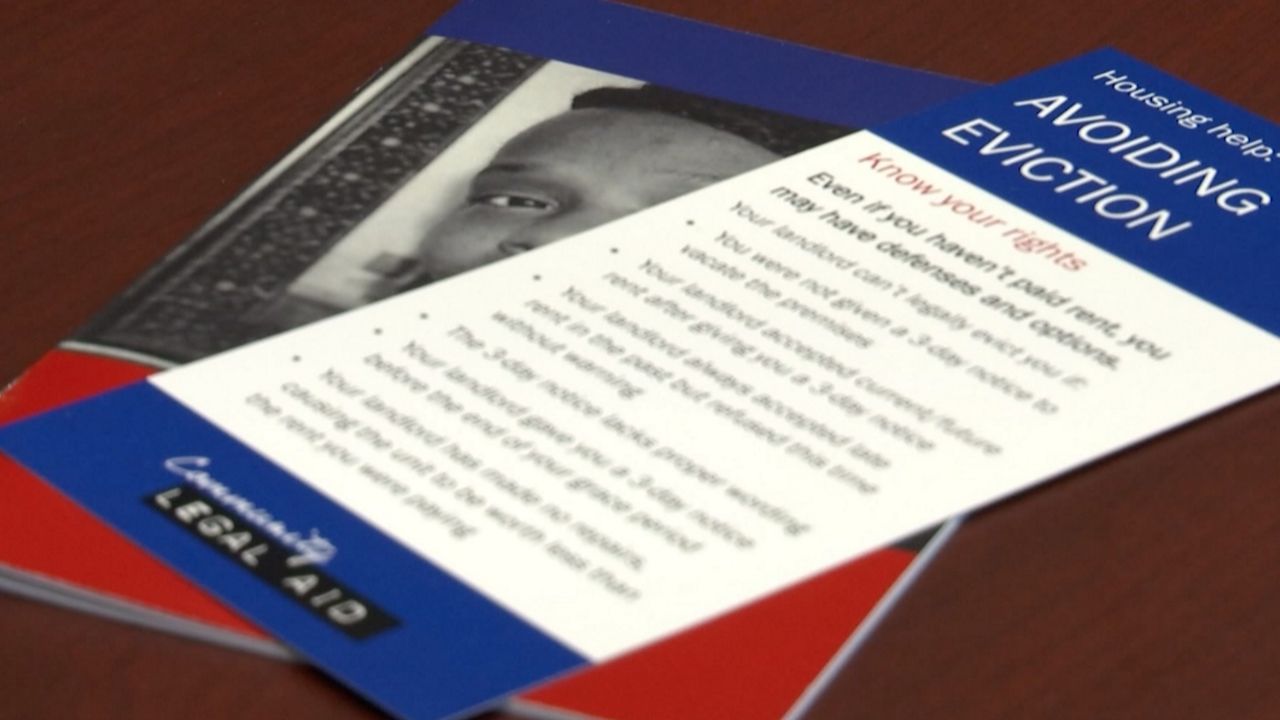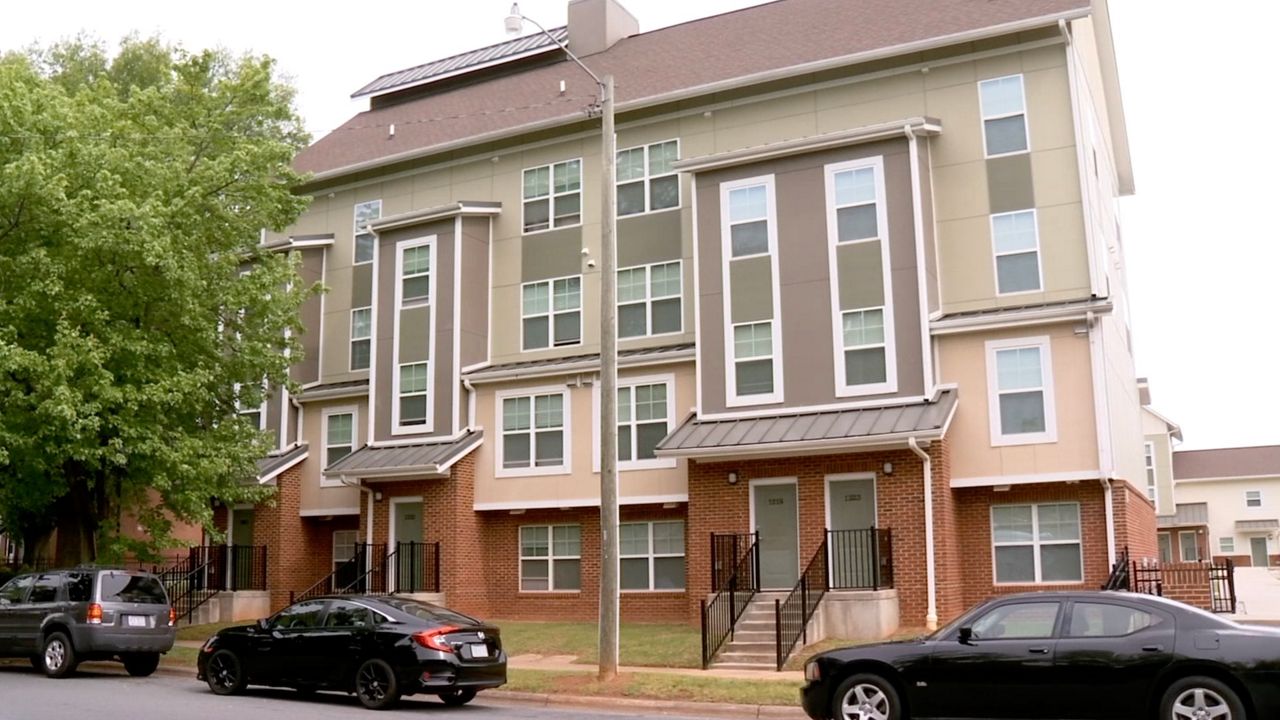CINCINNATI, Ohio — In Hamilton County, eviction hearings have resumed. But with more than 1,000 cases back-logged and the pandemic still ongoing, Hamilton County Clerk of Courts Aftab Pureval said now is not the time to put people on the streets.
What You Need To Know
- Hamilton County has resumed eviction hearings and is processing through more than 1,000 backlogged cases
- Most cases are being granted a continuance so that tenants can seek assistance through non-profit organizations to avoid being evicted
- Hamilton County Clerk of Courts said the goal is to make sure landlords get paid the money owed and tenants can stay in their homes
- Hamilton County has created a one-stop Eviction Help Center in the Justice Center in downtown Cincinnati
As Kimberly Phillips appears in court for an eviction hearing, she can’t help but think how hard things have been over the past few months.
“All of a sudden, the Coronavirus hit, and my hours got cut,” Phillips said. “I was getting 40 hours a week then all of the sudden my hours got cut to three days.”
Phillips said she’s worked the same job at Wendy’s for 16 years, but due to lost wages caused by the pandemic she hasn’t been able to pay her rent for the past three months.
“I’m trying to fight for my place because not only am I getting put out, I’m getting my grandson put out. And that’s the hurtful thing right there.”
Property managers are on the other side of eviction hearings. Lisa is a manager for an apartment complex in Finneytown, who said her community has been hit hard by the pandemic, but business still has to carry on.
“We’re human and understand what the people are going through,” she said. "But on the opposite end of the job, we have to do our job and it’s a sad situation all around.”
Hamilton County Clerk of Courts Aftab Pureval said these are just a couple of examples from more than 1,000 eviction cases in Hamilton County, but people all over the state are in the same boat.
“The eviction crisis is not unique to Cincinnati, it’s happening not only all over the state, but also all over the country,” Pureval said. "That’s why you see leaders in various jurisdictions coming up with creative and novel solutions.”
One of those leaders is Dayton Mayor Nan Whaley, who said her city has been experiencing high eviction rates long before the pandemic. So to help make things more friendly for tenants, the city commission and eviction task force have implemented these changes.
Landlords must now provide a receipt for rent paid in cash or money order to shift that responsibility to prove rent was paid to the landlord. Also, Dayton is capping late fees to five percent of monthly rent, or a maximum of $25.
“This plays in the racism is a public health issue as well because the people who tend to be evicted tend to be women of color with children,” Whaley said. “So it’s a disparate effect on our community as well.”
In Akron, Community Legal Aid is a non-profit law firm that serves people living in low-income housing across eight counties in Northeast Ohio. Managing Attorney for housing John Petit said they are expecting a large rise in eviction cases in Summit, Stark and Mahoning counties over the next few months.
He said as this widespread issue is addressed, it’s important that landlords play ball.
“They need to make sure the landlord is on board with dismissing the eviction,” Petit said. “Legally, they could accept money for the past rent, but still say they are behind on the current rent and still go forward with the eviction.”
Back in Hamilton County, Pureval’s office has created a one-stop Eviction Help Center inside the Justice Center in downtown Cincinnati. He said both landlords and tenants can get the legal help they need.
“They can apply for emergency rental assistance from St. Vincent de Paul and the Community Action Agency— two local non-profits that are helping disperse these funds,” he said. "Our goal is to make sure landlords get the rent that they’re owed and tenants can stay in their homes. We’re really looking for win-win solutions here.”
Pureval said Hamilton County has earmarked $3.5 million in emergency funding from the CARES Act for rental assistance. Tenants just have to take the proper steps to apply for help. But he said time is of the essence.
“This is why it’s important because in July the CARES Act unemployment benefits end,” Pureval said. “So what we’re expecting is an avalanche of evictions. We expect them to skyrocket in July and August.”
So for people like Phillips, the assistance program is a blessing because it will help her and her family keep their apartment.
“Happy, grateful, thankful,” she said. “Just give the person a hug for the help that they out here trying to help us.”
Ohioans who are facing eviction and need assistance understanding their rights or what to expect in court can find useful information on the Ohio Legal Help website. The site has access to legal forms, referrals to attorneys, and more — all at no cost. Just visit the website and search "Renter Protections."









